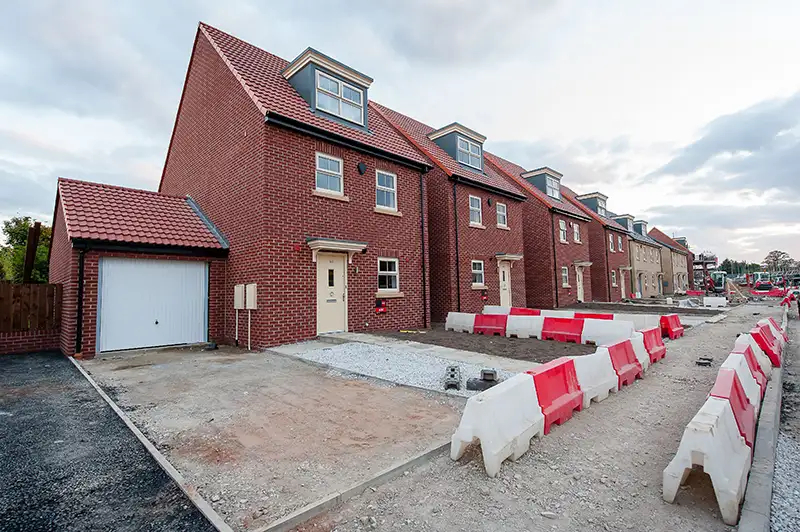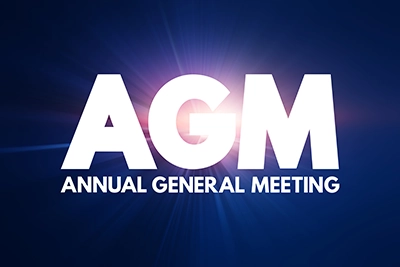Library Archive
MHCLG Consultation – Reforming the Right to Buy
The Government has confirmed that it is committed to retaining the Right to Buy as an important route for social tenants to achieve home ownership. However, achieving a scheme that is both ‘sustainable and fair’ requires new protections to ensure social housing is available in the long-term to meet future housing needs alongside encouraging new supply by giving councils the confidence to build new homes.
As a first stage, the Autumn Budget announced changes to the maximum Right to Buy cash discounts. These were reduced to pre-2012 levels, namely between £16,000 and £38,000. In addition, the cost floor protection period was increased from 15 to 30 years and councils will now no longer be required to return a proportion of RTB receipts to the Treasury.
The Government is now considering wider changes which are likely to require legislation. A consultation Reforming the Right to Buy was published on 20th November seeking views on further reforms, including increased protections for new build and changes to eligibility requirements.
The key areas under consideration are set out below:
- Eligibility
The consultation includes options on increasing the 3 years minimum public sector tenancy currently required to 5 years, 10 years or more than 10 years. Views are also sought on whether someone should be excluded from the scheme if they have benefitted previously.
- Discounts as a percentage of the property value
It is proposed to amend the current percentage discounts to align better with the new maximum cash discounts and that the same rules should apply to houses and flats.
Views are invited on reducing the minimum discount to between 0% and 5%, and the maximum discount to between 5% and 20%. The discount would increase by 1% for every extra year that an individual has been a public sector tenant, up to the maximum.
The consultation paper also asks whether maximum discounts specified in cash terms should be retained or whether they would be made unnecessary by the amendment of the maximum percentage discounts.
- Exemptions
The consultation seeks views on whether the current exemptions to the scheme are fit for purpose and whether new-build homes should be exempt from the Right to Buy for a specified period to better incentivise councils to invest in new stock. Views are also sought on how to protect council investments in retrofitting and other major improvement schemes.
- Restrictions on the use of the property after sale
Concerns have been raised around too many homes sold under the Right to Buy being let out. The Government does not propose to introduce covenants to prevent homes being let out, as this would be unduly restrictive and difficult to administer. Similarly, there is no intention to create a discount in perpetuity, as the complexity of the proposition is likely to outweigh any benefits.
Views are however sought on whether the time period in which the council has the right to ask for repayment of all or part of the discount received should be increased from 5 to 10 years.
- Requirements around the replacement of homes sold under the Right to Buy
The consultation asks whether replacement homes be primarily for Social Rent, and as far as possible, of the same size and in the same area as the properties that have been sold. Also – should there be a target to replace all future Right to Buy sales on a one-for-one basis?
- Simplification of the RTB receipts regime –
Under the current arrangements, the capital receipt generated from the sale of a home is divided into six parts (after funding the discount). Views are sought on how the system can be simplified and strengthened to better support the objective of replacement of homes.
The consultation paper also confirms that the Government will not be progressing proposals to extend the Right to Buy to housing association tenants and the previous Government’s policy on the sale of higher value assets proposed in the 2016 Housing and Planning Act will be repealed when Parliamentary time allows.
The consultation closes on 15th January 2025
CWAG Newsletter – October 2024
This Update includes the following

Government Plans for Reform of the Private Rented Sector (PRS)
The Government has moved quickly to introduce legislation that will deliver the manifesto commitment to ban Section 21 ‘no fault’ evictions and implement wider reform of the private rented sector. The Renters Rights Bill was published on 11th September 2024 and received its second reading on 9th October.
Whilst the Bill incorporates key elements of the previous government’s Renters (Reform) Bill, this legislation goes significantly further in terms of strengthening the position of renters through reform of tenancy law, introducing new protections to challenge unreasonable rent increases alongside enhanced enforcement and redress for tenants.
Key provisions include:
-
Section 21 evictions and periodic tenancies
Section 21 evictions will be abolished alongside the introduction of changes to tenancy arrangements. Assured tenancies and assured shorthold tenancies will be replaced by periodic tenancies providing more security and flexibility for tenants who will be able to remain in their home until they decide to end the tenancy by giving 2 months’ notice. There will be limited exceptions for example, houses in multiple occupation (HMOs) and designated student accommodation.
-
Grounds for possession
Landlords will be able to recover their property where they wish to sell or move-in close family, however tenants will benefit from a 12 month protected period at the beginning of a tenancy, during which a landlord cannot evict them to move-in or sell the property. There are also new safeguards for tenants who temporarily fall into arrears and the mandatory threshold for eviction is increased from 2 to 3 months and the notice period increased from 2 to 4 weeks. There are also various specified grounds for use in limited circumstances where accommodation is intended for a particular purpose and where the tenant no longer meets the conditions under which the tenancy was granted (e.g. supported housing).
-
Rent Increases
New arrangements will be introduced designed to empower tenants to challenge unreasonable rent increases (often used as a backdoor means of eviction). If a tenant believes the proposed rent exceeds the market rate, they can challenge this at the First-tier Tribunal which will determine what the rent should be, either confirming the proposed level or setting a lower figure.
-
Private Rented Sector Ombudsman
Private landlords in England with assured or regulated tenancies will be legally required to join a new PRS Ombudsman. The service will be available free of charge to tenants and funded through a charge on landlords. Local councils will have the power to levy fines where landlords fail to join the Ombudsman.
-
Renting with Pets
Tenants will gain the right to request a pet in the property. Landlords must consider these requests and cannot unreasonably refuse. However, landlords will be able to require pet insurance to cover any damage to their property.
-
New Private Rented Sector Database
Landlords will be required by law to register with a new Private Rented Sector Database with penalties for those who fail to comply. The database will help landlords understand their legal obligations and provide information to tenants about landlord performance. It will also help local authorities to target enforcement activity. Landlords will need to be registered on the database to have access to certain possession grounds.
-
Discriminatory Practices
New measures will address discrimination against prospective tenants in receipt of benefits or with children with financial penalties for those who fail to comply.
-
Decent Homes Standard
The DH standard will be enforced within the PRS giving renters better value homes and removing the blight of poor property condition.
-
Awaab’s Law
The Bill confirms that Awaab’s Law will be extended to the PRS, setting clear legal expectations about the timeframes within which landlords must take action to make homes safe where they contain serious hazards.
-
Rental Bidding
Landlords and agents will be required to publish an asking rent for their property, and it will be illegal to accept offers made above this rate.
-
Local authority enforcement
There will be a new requirement for local authorities to report on enforcement activity along with expanded civil penalties for non-compliance (including fines between £7,000 and £40,000)
-
Rent repayment Orders
New measures will increase the deterrent effect of rent repayment orders making them easier for tenants and local authorities to access.
Review of Housing Policy Announcements
There have been a number of announcements relating to social housing policy in the first three months of the Labour Government:
Social Housing Quality and Professionalisation
The Secretary of State confirmed at the Labour Party Conference that Awaab’s Law will be introduced for the social rented sector this autumn, with plans to introduce it to the private rented sector at a later date, once the legislation is in place (see Renter’s Rights Bill above).
The government has also confirmed its intention to press ahead with the Competence and Conduct standard for the social rented sector to ensure tenants receive a professional service and are treated with respect and dignity. The timetable for implementation has yet to be confirmed.
The Secretary of State has also confirmed the government’s intention to consult on a new Decent Homes Standard for social and privately rented homes, however no specific timescales have been indicated to date.
Measures to ensure decent homes for all – GOV.UK (www.gov.uk)

Building New Homes
Since the election there have been a number of announcements to promote newbuild development and wider economic growth, in line with the Labour Manifesto commitment to build 1.5 million new homes over the next 5 years. These include:
- Consultation on a revised Planning Policy Framework to overhaul the planning system, opening up new areas for development as well as speeding up planning approvals and delivering wider economic growth. (for further details see August Newsletter)
- New Towns Taskforce to advise and support government aspirations to develop a programme of new towns.
- New Homes Accelerator programme to bring together key agencies, leveraging resources to unblock large development sites around the country where progress has stalled.
- Brownfield Land Release Fund will provide £68 million to 54 councils to fund demolition of empty buildings, site clearance and decontamination of industrial land.
The Autumn Budget on 30th October should provide more detail around funding for new social housing development.
Energy Efficiency, Decarbonisation and the Warm Homes Plan
Currently, properties in the private rented sector can be rented out if they meet EPC E and there is no minimum energy efficiency standard for social rented homes. At the Labour Party Conference, the energy secretary announced plans to raise the energy efficiency rules applicable to social housing as part of the governments Warm Homes Plan. The government will consult before the end of the year on proposals for private and social rented homes to achieve EPC C or equivalent by 2030.
The Warm Homes: local grant scheme has also been relaunched to help low-income homeowners and private tenants with energy performance upgrades and cleaner heating. Home upgrade revolution as renters set for warmer homes and cheaper bills – GOV.UK (www.gov.uk)
In the social housing sector, Wave 3 of the Social Housing Decarbonisation Fund, now renamed Warm Homes: Social Housing Fund opened for applications on 30th September. Warm Homes: Social Housing Fund Wave 3 – GOV.UK (www.gov.uk)

Local Authority Housing Fund
The existing proposals for a third round of the Local Authority Housing Fund are going ahead as planned over two financial years (2024-25 and 2025-26). The £450 million programme announced by the previous government will be made available to councils to acquire better quality temporary accommodation for families at risk of homelessness as well as providing suitable housing for those on the Afghan citizens resettlement scheme.

Right to Buy
The government moved quickly to announce new flexibilities for RTB receipts which will be in place for an initial period of 2 years, subject to review at the end of 2025/26:
- Councils can use up to 100% retained receipts to fund replacement homes, a significant increase from the previous 50% cap.
- Right to Buy receipts may be combined with section 106 contributions.
- The cap on the percentage of replacements delivered as acquisitions has been lifted.
A wider review of the RTB scheme is underway within MHCLG with a consultation due later in the Autumn. This is likely to focus on the level of RTB discounts, particularly the increased levels in place since 2012. The Secretary of State has indicated that the intention is to restrict rather than abolish the scheme.
Retained Right to Buy receipts and their use for replacement supply: guidance – GOV.UK (www.gov.uk)
Local Connection or residency rules
The majority of stockholding councils have allocations schemes which include a local connection or residency test as part of the housing application process. However, in line with Labour’s election manifesto commitment that UK Armed Forces Veterans will be exempt from rules which require a local connection to access social housing, the government has recently written to councils setting out the policy position with formal regulations to follow in due course. The government has also clarified that a similar exemption will apply to other priority groups where demonstrating a local connection can be difficult, including care leavers and victims of domestic abuse.
UK Armed Forces Veterans given social housing exemption – GOV.UK (www.gov.uk)
Recent Publications
Planning Consultation
LGA response to the Government’s consultation on the National Planning Policy Framework (NPPF) is available on the LGA website. A useful summary of key points is available in the accompanying press release.
CWAG Newsletter – September 2024
This Update includes the following

Submission to the Autumn Budget and Spending Review
CWAG has linked up with ARCH and the NFA on a joint submission covering both the Autumn Budget and the Spending Review.
The submission sets out the scale of the current funding crisis facing many council Housing Revenue Accounts (HRAs) and outlines its origins including the abandonment of both rent convergence and the formula for annual rent increases agreed within the 2012 self-financing settlement. The requirement to reduce rents by 1% per year between 2016 and 2020 significantly undermined capacity within HRAs reducing council income by an estimated £2.4 billion (amounting to an estimated loss of £42 billion from business plans by 2042). In addition, the further cap on rent rises in 2023-24 is estimated to have cut income by £644 million.
The income shortfall created by these measures has undermined the capacity of business plans to keep pace with stock investment needs, a situation further exacerbated by the emergence of new expenditure pressures including the cost of compliance with the new fire and building safety requirements, the new consumer regulatory regime, the need to improve energy efficiency and progress decarbonisation.
Drawing on the latest Savills research the submission sets out the scale of the current funding shortfall in relation to the existing stock and calls for a longer-term strategy to address this whilst setting out the necessary conditions for councils to deliver on the government’s ambition to build a new generation of council homes.
Joint ARCH NFA CWAG Autumn Budget and Spending Review Submission
Consultation outcome – Proposed reform of social housing allocations dropped.
The previous government held an 8-week consultation between January and March this year setting out a series of proposed reforms to social housing allocations.
The proposals included a UK connection test; mandatory local connection, income, and anti-social behaviour (ASB) tests; a new ground for eviction for those convicted of terrorism offences and a ‘three strikes and you’re out’ policy for ASB.
The new government has now indicated that it will not be taking forward these proposals on the basis that the changes are either unnecessary, given there are already stringent national and local rules in place determining who is eligible and who qualifies for social housing; costly, given implementation requirements and likely increases in homelessness or TA numbers; or would potentially harm communities and individuals by increasing the public safety risk or risk of reoffending.
Consultation on reforms to social housing allocations – GOV.UK (www.gov.uk)
Recent Publications
A new rent settlement – Savills – September 2024
A 10-year rent settlement which allows councils and housing associations to increase general needs rents by a maximum of CPI+1% each year has been trailed in the media ahead of the Autumn budget. This briefing note looks at the impact of increasing general needs rent by CPI+1% over the next 10 years and how this compares to likely future growth in market rents.
Savills has modelled increases in general needs and market rents to assess how the proposed rent settlement will affect the level of discount that social housing offers tenants. Broadly speaking, such a policy, if it came to pass, would not fundamentally affect relative prices across the country – in fact since 2016 the gap between social rents and PRS rents has been widening. This research and analysis provide helpful context for the debate around affordability.
Securing the Future of council housing – Five solutions from 100 of England’s council landlords – Commissioned by Southwark Council – September 2024
The starting point of the report is that the council housing financial model is ‘broken’ and facing an expected £2.2billion black hole by 2028. Unless something is done soon, most council landlords will struggle to maintain their existing homes adequately or meet the huge new demands to improve them, let alone build new homes for social rent. The report calls for an immediate cash injection of £644 million, equivalent to the income lost from the 2023-25 rent cap to stabilise HRAs and prevent further waste caused by delaying or cancelling investment plans.
The five longer term policy recommendations to government are:
- Establish a new fair and sustainable HRA model: including a long-term and certain rent-settlement, an adjustment of HRA debts and more favourable conditions for council investment.
- Reform unsustainable Right to Buy policies: by reducing discount levels and eligibility, as well as protecting newly built council homes from sale.
- Remove red tape on the Affordable Homes Programme and other funds: funding should be streamlined, allocated simply, reflect recent cost inflation, and allowed to be used flexibly to meet local housing need.
- A Green & Decent Homes Programme: long-term funding to bring all council housing up to the new standard of safety, decency and energy efficiency by 2030 – and a road map for achieving net zero by 2050.
- Fund new and replacement council homes: utilising new council house building to underpin the housebuilding sector.
Learning from Severe Maladministration – Housing Ombudsman Report – August 2024
This Housing Ombudsman report focusses on severe maladministration cases involving windows and follows earlier concerns raised by the Ombudsman regarding the handling of complaints regarding windows – see copy of earlier open letter sent to Chief Executives. The report is part of a series helping landlords prepare for the introduction of Awaab’s Law.
2023/24 Right to Buy Sales and Replacements
MHCLG has published the statistics for Right to Buy sales and replacements between April 2023 and March 2024.
- Total sales since the introduction of RTB reached 2,026,893.
- Sales in 2023/24 were 6,275 (down 43% on 2022/23)
- 3046 replacements achieved from receipts in the same period.
- The average sales receipt was £98,454.

CWAG Organisational Changes
Following the AGM we are pleased to welcome two new representatives to the Executive Group – Jenny Daisley from Shropshire Council and Henry Gregory from West Northamptonshire Council.
Southend on Sea City Council has taken over from Manchester City Council as the Administrative Authority for CWAG. The TUPE transfer of the CWAG Policy Officer post took place on 2nd September 2024 and the transfer of financial responsibilities will be completed shortly.
Review of RTB and new flexibilities on using RTB receipts announced
The Government has announced a review of the Right to Buy including eligibility criteria and protections for new homes. A consultation on changes will be issued in the autumn. The increased Right to Buy discounts introduced in 2012 will also be reviewed and changes implemented via secondary legislation.
Increased flexibilities on how councils can use Right to Buy receipts have also been announced. The following changes will come into effect immediately and will apply for 2 years initially, subject to review:
- Removing the cap on the percentage of replacements homes that can be delivered as acquisitions.
- Removing the 50% cap on the level of RTB receipts that can be used to fund the cost of a replacement home.
- Allowing councils to combine Right to Buy receipts with section 106 contributions.
Planning Reform Consultation
Reform of the planning system is a central priority for the new government as it offers the potential to address the current housing crisis whilst also delivering wider economic growth.
A consultation covering changes to the National Planning Policy Framework (NPPF) has been issued setting out the government’s plans including:
- A new methodology for calculating local authority housing targets designed to support delivery of the Government’s manifesto commitment of 1.5 million new homes in this Parliament.
- A broader definition of brownfield land and an assumption that applications to develop brownfield land will be approved.
- Recognition that to achieve housebuilding targets, councils will need to consider development on parts of the Green Belt that are of low environmental quality, referred to as the ‘grey belt’.
- Clarifications around the ‘presumption in favour of sustainable development’ including new safeguards against poor quality development.
- Raising building densities in urban areas.
- Measures to improve the delivery of affordable and social housing with an increased priority and focus on social rent.
The consultation runs from 30th August 2024 to 24th September 2024
CWAG Newsletter – August 2024
This Update includes the following

Housing Policy Update
In a major policy speech on 30th July Angela Raynor, Deputy Prime Minister and Housing Secretary, set out how the new government intends to deliver on the Party’s manifesto commitments on housing. The Secretary of State has also written to local authorities setting out the detail of the government’s programme. Read letter here
Planning Reform
Reform of the planning system is regarded as the key to addressing current housing shortages and delivering wider economic growth. A consultation covering changes to the National Planning Policy Framework (NPPF) was issued to coincide with Angela Raynor’s policy statement. The consultation includes the following proposed changes:
- A new mandatory standard methodology for assessing housing need and a requirement for local authorities to plan for the resulting figure.
- A requirement to identify ‘grey belt’ land within the Green Belt, to be brought forward into the planning system.
- New “golden rules” for land released in the Green Belt to ensure it delivers in the public interest including a requirement that development should include 50% affordable homes along infrastructure such as schools and GP surgeries.
- Broadening the existing definition of brownfield land and a strengthened expectation that applications on brownfield sites will be approved.
- Raising building densities in urban areas.
- Clarifications around the ‘presumption in favour of sustainable development’ including new safeguards against poor quality development.
Housing Targets
Mandatory housing targets are to be reinstated requiring all councils in England to plan for increased housebuilding in their areas. The target set out in the Labour manifesto of 1.5 million homes over the life of the Parliament has been uplifted from 300,000 homes per year to just over 370,000 homes per year. This reflects a change in the methodology for calculating targets to ensure development is proportionate to the size of existing communities, while adding an extra level of ambition in the most unaffordable areas. The target for London has been reduced from 100,000 homes to around 80,000 homes per year.
Green Belt Land
Commitments to focus development on previously developed brownfield sites remain, however there is an expectation that in order to achieve housebuilding targets, councils will need to consider development on parts of the Green Belt that are of low environmental quality, referred to as the ‘grey belt’.
Social Housing
The Secretary of State confirmed that the government has ambitious plans for social and affordable housing, namely to ‘deliver the biggest boost to social and affordable housing in a generation’. Detailed plans will be brought forward as part of the multiyear spending review due to conclude in Spring 2025.
There will also be an announcement on future social housing rents as part of the Autumn Budget Statement on the 30th October which will ensure council housing finances are put onto a secure footing with rent stability enabling councils ‘to be able to borrow and invest in new and existing homes’.
Right to Buy
The Government has announced a review of the Right to Buy including eligibility criteria and protections for new homes. A consultation on changes will be issued in the autumn. The increased Right to Buy discounts introduced in 2012 will also be reviewed and changes implemented via secondary legislation.
Increased flexibilities on how councils can use Right to Buy receipts have also been announced. The following changes will come into effect immediately and will apply for 2 years initially, subject to review:
- Removing the cap on the percentage of replacements homes that can be delivered as acquisitions.
- Removing the 50% cap on the level of RTB receipts that can be used to fund the cost of a replacement home.
- Allowing councils to combine Right to Buy receipts with section 106 contributions.
Awaab’s Law
The Government has also confirmed that Awaab’s Law will be introduced into the social rented sector, with more detail and secondary legislation to implement this in due course.
Housing Legislation in the King’s Speech
The official opening of Parliament and the King’s Speech on 17th July set out the new Government’s planned legislative programme for the first parliamentary session. There are 4 Bills directly relevant to housing.
The Planning and Infrastructure Bill aims to speed up development by delivering improvements to the planning system including:
- Modernising planning committees and increasing capacity at the local planning authority level.
- Changing the rules surrounding Nationally Significant Infrastructure Projects to accelerate the planning permission process.
- Unlocking more sites for development through reform of the compulsory purchase compensation rules. The proposals aim to ensure that compensation paid to landowners is “fair but not excessive” in cases involving affordable housing and other important social and physical infrastructure.
- Using developer nature recovery contributions to help unlock stalled development sites.
The Renters Rights Bill is a carryover from the Conservative administration; a similar Bill was a casualty when the General Election was called unexpectedly. The King’s speech confirms that the Labour government will seek to continue the proposed rental sector reforms along with some additional measures. The key areas to be covered by this legislation are:
- Abolishing Section 21 ‘no fault evictions’ alongside clear and expanded possession grounds so landlords can reclaim their properties when they need to.
- Strengthening tenants’ rights and protections, including enabling tenants to challenge excessive rent and new laws to end the practice of rental bidding wars by landlords and letting agents.
- Giving tenants the right to request a pet, which landlords must consider and cannot unreasonably refuse.
- Applying a Decent Homes Standard to the private rented sector – tackling the blight of poor-quality homes.
- Applying ‘Awaab’s Law’ to the private rented sector.
- Creating a digital private rented sector database to bring together key information for landlords, tenants, and councils to target enforcement more effectively.
- A new ombudsman service for the private rented sector that will set up to provide fair, impartial and binding resolution, to both landlords and tenants and reducing the need to go to court.
- Making it illegal for landlords to discriminate against tenants in receipt of benefits or with children when choosing to let their property.
- Measures to strengthen the enforcement powers of local councils including new investigatory powers intended to make it easier for councils to identify and fine unscrupulous landlords.
The Kings Speech also referred to a Draft Leasehold and Commonhold Reform Bill signalling the Government’s intention to re-examine the issue of commonhold and leaseholder rights, with the intention of moving beyond the Conservative government’s Leasehold and Freehold Reform Act. In addition, the English Devolution Bill includes the prospect of further devolution of housing powers to local government level.
Recent Publications
Consumer Regulation Review 2023/24 (published July 2024)
The Regulator of Social Housing has published the annual review of its consumer regulation work for the past year. Although the report covers the period prior to the new regulatory approach, the learning points and case studies are highly relevant in the context of the new standards.
Key messages:
- Landlords must meet all health and safety requirements to keep tenants safe. The report highlights cases where required checks for fire, gas, electrical, asbestos and water safety had not been completed. There were cases where landlords could not provide assurance that all homes had smoke alarms and carbon monoxide detectors. Also, in some cases remedial actions identified in fire risk assessments had not been completed within the specified timescales.
- Landlords are expected to know the condition of the homes they manage and have effective systems and reliable information on condition and quality which is used to ensure tenants homes are good quality, safe and well-maintained.
- Complaints can provide an important source of insight and intelligence for landlords about how their systems are working. Landlords must have the systems in place to learn from complaints when things go wrong.
- Boards and councillors need to understand the required outcomes of the consumer standards and have good oversight and scrutiny arrangements.
- Landlords need to engage effectively with tenants, treating them with fairness and respect.
- Co-regulation requires landlords to refer themselves to RSH when they find a material issue, or a potential material issue, so it can be resolved promptly if required.
Why Councils are underinvesting in housing and how an updated debt settlement could put that right – Joint CIH / Savills Report (July 2024)
This report looks at options for addressing the erosion of the 2012 HRA settlement in recent years which has left HRAs chronically under resourced.
Running through the options available to secure additional funding for council housing, the report makes the case for re-opening the 2012 settlement as the most effective and straightforward approach.
This would involve transferring the estimated £17 billion of unsustainable debt from local authorities to central government enabling council housing finance to become sustainable for the long term, in line with the goal in 2012. An intervention on this scale is required to deliver headroom for investment in existing stock and to recreate the newbuild capacity that existed in 2012.
Radix Big Tent Housing Commission – Public Memorandum to the Housing Minister from Dame Kate Barker CBE (July 2024)
Kate Barker who 20 years ago led a landmark review into housing supply in the UK is currently Chair of the above Commission which aims to propose practical solutions to current housing problems. Following the General Election, the Commission has opted to publish some early policy insights in a memorandum shared with Matthew Pennycock the incoming housing minister.
Switching to social rent: delivering the homes we need – New Economics Foundation (June 2024)
This paper sets out the case for the new government to reform housing grant funding and refocus the programme on social rent. Conservative administrations have concentrated on funding affordable rent and shared ownership at the expense of social rent. The paper argues that this is fiscally inefficient because much of this housing would be viable without grant and funding should therefore be freed up for social rent which is undeliverable without significant grant input.
Addressing the housing crisis will also require fundamental reform of the way housing grant is allocated and administered, bringing an end to Treasury restrictions which have left Affordable Homes Programme (AHP) funding and Housing Infrastructure Fund (HIF) grants unspent.
Diary Date – CWAG Annual General Meeting
This year the CWAG Annual General Meeting will be on Thursday 19th September 2024 (10.00 -12.00). The meeting will take place over Teams. Please note the date in your diary.
Our speaker this year will be Eamon McGoldrick, Managing Director of the National Federation of ALMOs. Eamon will discuss progress on current proposals for sector-led improvement. Recent press reports have highlighted moves to set up a new representative body for council housing to achieve a strong coherent voice on policy matters and new arrangements to promote and share good practice. This is a timely opportunity to find out more about these proposals and consider the implications for councils with ALMOs.
The formal business of the AGM involves electing representatives of the Executive Group as well as reviewing the group’s finances and operating arrangements and Terms of Reference.



